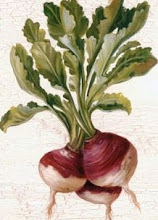"The man who had his heart removed from his body and peeled like an orange" fights back from the excesses of life. I look forward to the immient release of this talented authors third novel. Review by Lionel Shriver.
Now that unhappiness has been redefined from existential state to chemical imbalance, the subject matter of Dirk Wittenborn’s third novel, Pharmakon, is timely. Indeed, the fascinating questions it raises about prescription contentment make the novel’s structural shortcomings only more frustrating.
In 1952, Dr William Friedrich is a psychology professor at Yale on the new frontier of mood-altering drugs. His fellow researcher Bunny Winton discovers a plant-based substance from New Guinea called gai kau dong that shows promise as an antidepressant. Together they ferment and distil the “GKD”, first testing their potion on rats.
How can you tell if a rat is depressed? Sadness being akin to hopelessness, Friedrich and Winton release their subjects into a pool too deep for the rats to rest. It’s a lovely scene: the control rats soon succumb to despair, and drown. The rats high on GKD continue to swim merrily back and forth across the pool, in faith that tomorrow, tomorrow, there’s always tomorrow, it’s only a day away.
The researchers promptly recruit human subjects for trials. Fatefully, however, they include Casper Gedsic, a bright but socially awkward misfit. Nearly every subject taking GKD benefits – losing weight, recovering interest in sex, conquering phobias.
But Casper transforms utterly, becoming a suave, manipulative social climber who deploys his gift for mathematics on the gold market. The experiment concludes; suddenly deprived of GKD, the prince reverts to frog. But Casper no longer cares for being a frog. Vengefully, he shoots Winton dead, cripples her husband, and (maybe) kills Friedrich’s son Jack.
This whole initial section of Pharmakon is delightful. The writing is witty, the storytelling engaging. However, once Casper is incarcerated in a mental institution, from which thankfully he escapes for a reprise menacing of Friedrich’s family, the book assures us that we’ve pretty much heard the last from Casper, and the narrative suddenly goes limp.
What follows is an all too routine coming-of-age story, told from the perspective of Zach, the boy born as a replacement for the hapless Jack. Zach dutifully sustains the novel’s pharmaceutical theme by taking a plethora of recreational drugs in his teens, and by getting addicted to cocaine in his adulthood.
Yet meanwhile a sharp, distinguished story with some of the well-observed period details of TC Boyle’s The Inner Circle has slid into a bog-standard family epic, marrying off and resolving the sexual confusions of the other three siblings and every once in a while dropping Casper’s name in the prose to remind us of the olden days when Pharmakon was really, really fun.
Aside from this huge not only structural but emotional problem – we do not care about Zach; we want to go back to Casper – there’s also a problem with Friedrich, who is meant to be a complex, larger-than-life figure dominating the book, a man who understands what makes people tick by occupation, but who can’t navigate relationships in his own family.
But the character never coheres into more than a hard-working, ambitious psychologist who sometimes gets on the wrong side of his children, like any normal father. Wittenborn’s failure to manifest Friedrich as a fictional character worthy of his role in the novel may be traced to the distractions of autobiography. Wittenborn makes no bones about the fact that Friedrich is based on his father. Towering eminences in an author’s life do not always tower on the page.
Pharmakon is quite well written. The dialogue is lively, and some descriptive lines zing: “His face was pink, wizened, and ticked with age spots. He looked like a skull inside an udder.” In both Before and After incarnations, Casper Gedsic is a marvellous creation; perhaps because he feels wholly made up, he comes to life as successful fiction.
Wittenborn’s reflections on the nature of contentment aren’t always deep, but perhaps because they have to make room for so much soap opera from ancillary characters whose marriages are not central to his themes. More on the pursuit of happiness would have been welcome.
Monday, January 26, 2009
Subscribe to:
Post Comments (Atom)


0 comments:
Post a Comment